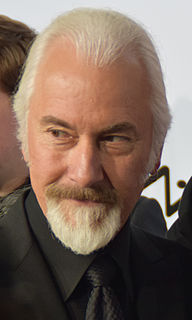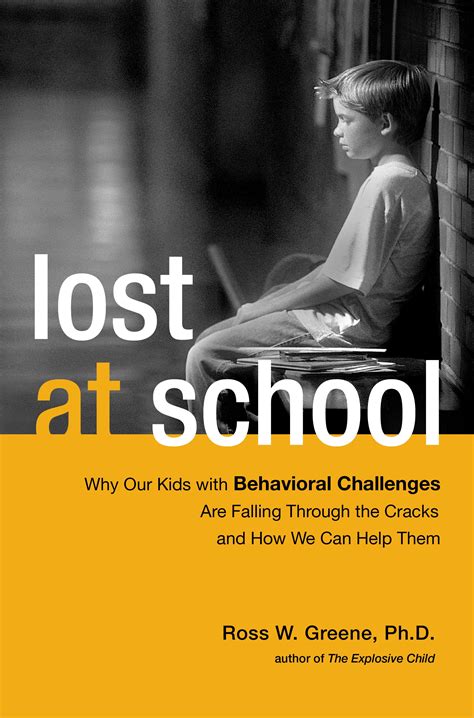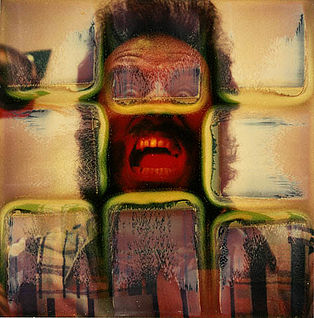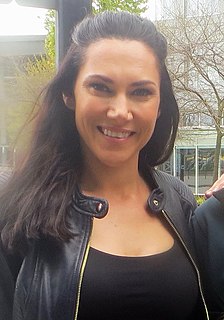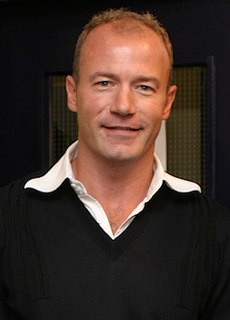A Quote by Rick Baker
I can't tell you how many people would say to me as a teenager, 'Why don't you grow up and start thinking about getting a real job?'
Related Quotes
I think that in the first place, why we can get excited about [Buckminster ] Fuller, why it's plausible that people might - why my publisher would publish this book [You belong to the universe] about it long after he's dead and irrelevant by many standards has to do with the fact that he was in a sense coming up with this job for himself that is the job that we now refer to when we speak about world change.
As a child, I always enjoyed - my parents used to have these little cocktail parties - and I always loved trying to get the adults to tell me things they weren't supposed to say. And in many ways, that's what my job is today; it's getting people to tell me things that they probably are otherwise not supposed to say.
One of the things I noticed about the Trump supporters was a lot of projected fear. I can't tell you how many times a conversation went like this: "We've got to stop these immigrants, because it's terrible." I'd say, "Okay, what personally have you observed about this?" And there would be basically nothing in that box. And I'd say, "Where'd you get your information?" thinking they were going to say Fox. But they would always say, "Well, I get my information from all kinds of sources." Fox is kind of center-left to a lot of people now.
I didn't even have that many close LGBT friends or anything like that, but I suppose it was growing up and becoming aware of how you are in a cultural landscape that is blatantly homophobic... you turn around and say, 'Why did I grow up in a homophobic place? Why did I grow up in a misogynistic place?'
A lot of parents aren't exactly sure how to go about solving a problem with a kid in a way that's mutually satisfactory - doing that with their child feels very foreign to a lot of people. It probably explains why so many parents tell me their kids don't listen to them and why so many kids tell me that they don't feel heard.
I'm looking back at what I did and how it works. In a sense I'm waiting to see how people will respond. I'm waiting to see how you respond, without asking me to tell you what I think about it, because it is your job to give me an idea of how you go about thinking about this work. And if it's too absurd then, you know, I'll kick you out!
Why would anybody connect to someone who has everything going for them? It's the person who has faults that people want to connect to. So people identify with certain insecurities on stage and just by me talking about my diabetes people come up to me after the show and tell me "Gabe, my blood sugar is out of control and I feel you". That's the first thing they say, they say "I feel you!".
For me, the thing that I love about the show is the psychological thriller aspect of it. It's frightening and it's scary, and there are all these things that happen. You have these really dramatic scenes, and then you get in a scene with him and I can't tell you how many times I would start cracking up.
There is another side to me which people don't often see, but it's very hard for me to show that. When I do interviews, I'm talking to people I don't know and when you speak to a stranger you don't open up, do you? In my position, people are always looking for something to say about me. And anything I do say, given half-a-chance they'll turn it round into something spectacular so I've got to be very careful. That's why it's only my friends and family who know the real me. Now my wife, Lainya, she could tell you a few stories.
I've never written a fiction before about real people. . . . I read everything that I could find by people who met them and tried to get some impression of them, but as always when you write fiction, even if you have completely fictitious characters, you start by thinking of what is plausible, what would they say, what would they be likely to do, what would they be likely to think. At some point, if it is every going to come to life, the characters seem to take over and start speaking themselves, and it happened with [COPENHAGEN].
